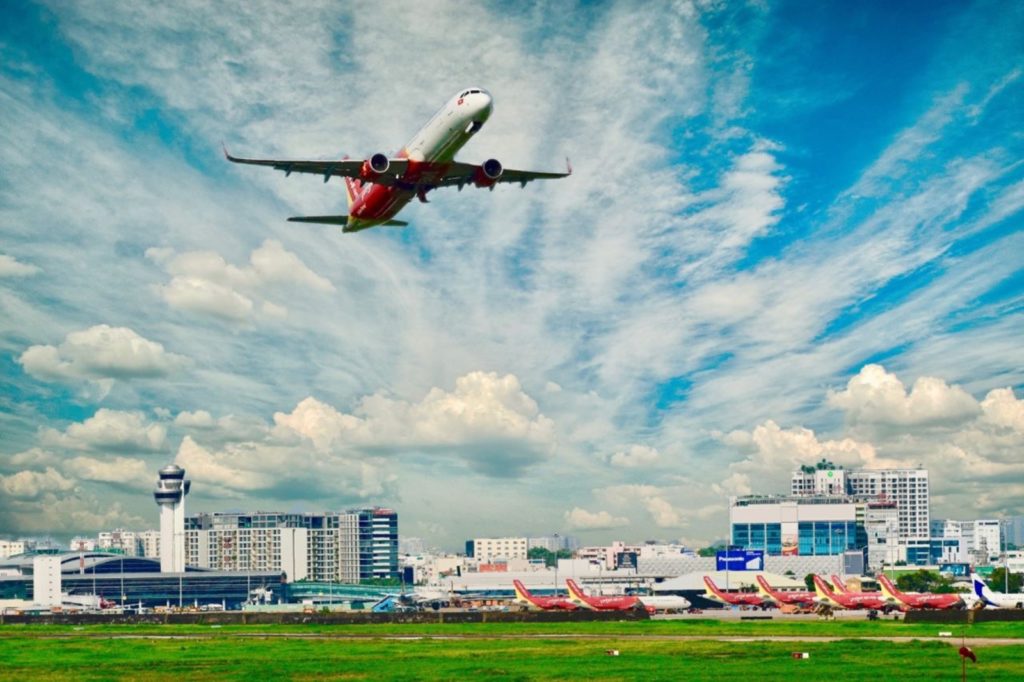
protagonist Lacie lives in a world where her social rating dictates every aspect of her life, including her
right to travel. One faux pas and her chance to take holidays disappear before her.
Yet, this could soon be a reality as Chinese travellers with bad “social credit” could soon face a ban on flights and trains, under Xi Jinping’s new system.
In many countries, freedom of movement or mobility rights is part of a person’s basic human rights. This may no longer be the case in China. The country has announced that people who committed misdeeds will be barred from taking such transport, for up to a year.
According to Reuters, citing China’s National Development and Reform Commission, examples of acts that will earn you bad “social credit” are “spreading false information about terrorism and causing trouble on flights, as well as those who used expired tickets or smoked on trains.”
The department added that people who committed financial misconducts such as employers that failed to pay social insurance, as well as citizens who failed to pay fines, would also be restricted to travel. In simple terms, good behavior is rewarded, and bad behavior is punished.
“Once untrustworthy, always restricted”
The new system will be in full effect starting 1 May as part of president Xi Jinping’s plan to construct a social credit system to promote discipline among travellers based on the principle “once untrustworthy, always restricted”.
Deputy director of China’s NDRC Zhang Yong stated that another set of trials will take place in various provinces in the next two years, although previous trials have been held already. According to The Telegraph, nine million Chinese buying domestic flights, and three million more from buying business class tickets have been banned during the early trials of the system.
“NDRC will increase the intensity of joint rewards and punishments so that dishonest people will be punished and the faithful will be motivated,” Zhang added.
Long-term goal

The social credit system is just a sliver of the wider plan to be rolled out by 2020. Every act, from how one treats their parents to the items they purchased, will affect their social credit. Under the new policy, government officials claimed that it will “allow the trustworthy to roam everywhere under heaven, while making it hard for the discredited to take a single step”.
The system will also allow government bodies to collect and share information on its citizens’ trustworthiness. The so-called credit score will also warrant penalties. In China, gambling is illegal and drug offenses are punishable by death. Random checks on citizens are also not uncommon.
Some people are already questioning the objectivity of collecting information for the credit score. Human rights groups are also concerned that the use of social media and political allegiances may be used to rate citizens.
“Allow the trustworthy to roam everywhere under heaven, while making it hard for the discredited to take a single step”
Meanwhile, it seems that China has been implementing a similar travel ban to “untrustworthy” passengers for some time. One traveller claimed that more than six million Chinese nationals were banned from flying due to social misconducts, according to Supreme People’s Court.
In 2016, BBC reported that five Chinese airlines – Air China, China Eastern, China Southern, Hainan Airlines and Spring Air – joined forces and will share details of unruly passengers to blacklist them from flights. Passengers who beat the staff and those who refused to get on the plane or block the exit are often the targets of the ban.
‘Nuisance passengers’
Chinese tourists spend more than $300 billion abroad each year, a huge sum spent compared to other nationalities. While they are big spenders, they have bee tagged as nuisance passengers and tourists. We found a couple of examples of such behaviour:
In 2015, Thai authorities detained and expressed frustration over 30 Chinese tourists after their flight was delayed for more than 10 hours. The Chinese tourists reportedly refused to board the aircraft and sang the Chinese national anthem.
In the same year, a Chinese passenger set fire to curtains and newspapers in the first class cabin of a plane prompting for the airport in eastern China to suspend its operation at the time.

In 2014, a Chinese passenger threw noodles at a flight attendant in an Air Asia flight to Nanjing after the stewardess told her she could not sit next to the people she was travelling with.
The China National Tourism Administration has claimed that these incidents are damaging the overall image of the Chinese people. It remians to be seen if the government’s social credit system is the way to fix this.

x Studio



Connect with your clients by working with our in-house brand studio, using our expertise and media reach to help you create and craft your message in video and podcast, native content and whitepapers, webinars and event formats
- Related Articles
- View all



 share
share





































